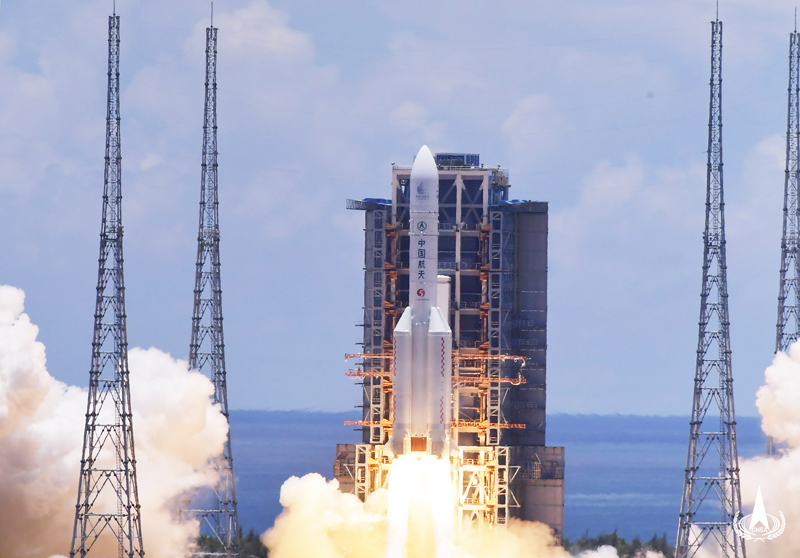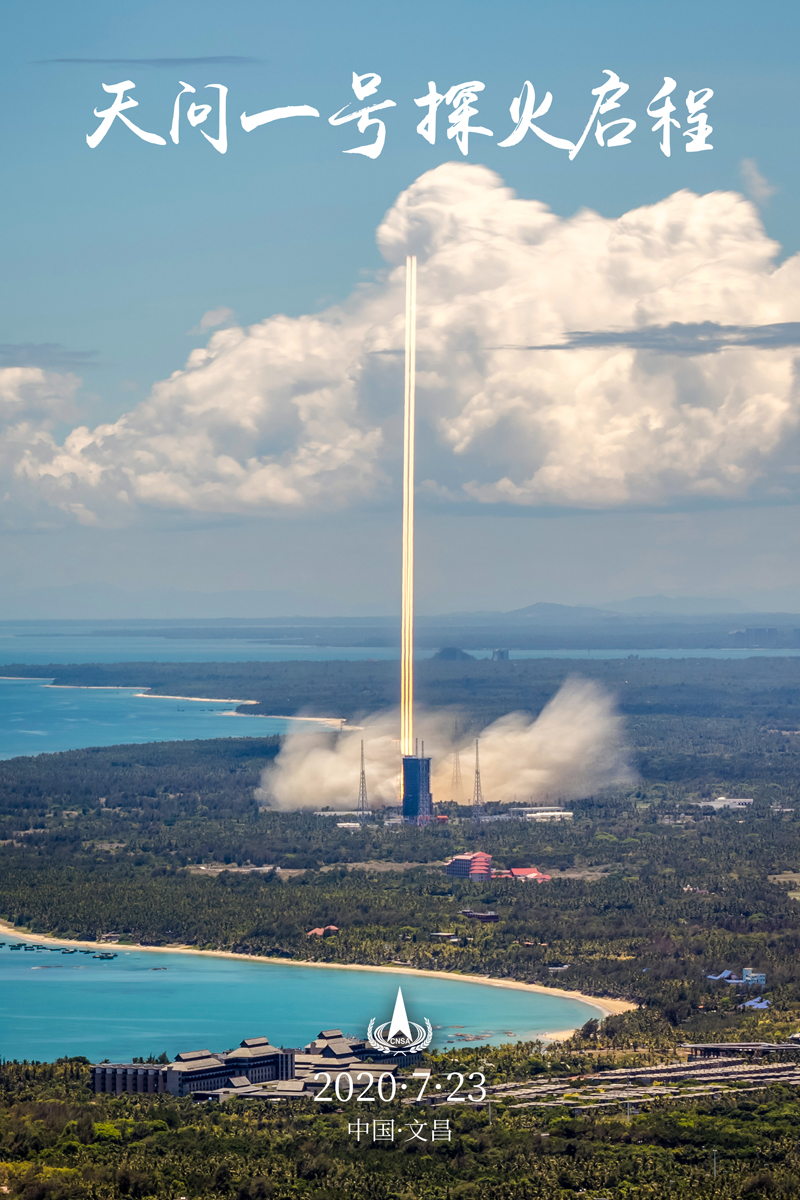 07/23/2020
07/23/2020
China launched a Mars probe on Thursday, aiming to complete orbiting, landing and roving in one mission, and taking the first step in its planetary exploration of the solar system.
A Long March-5 rocket, China's largest launch vehicle so far, carrying the spacecraft with a mass of about five tonnes, soared into the sky after the take-off at 12:41 p.m. BJT from the Wenchang Spacecraft Launch Site on the coast of south China's island province Hainan.
About 36 minutes later, the spacecraft, including an orbiter and a rover, was sent into the Earth-Mars transfer orbit, embarking on an almost seven-month journey to the red planet, according to the China National Space Administration (CNSA).
China's first Mars mission is named Tianwen-1, which means Questions to the Heaven, and comes from a poem written by Qu Yuan (about 340-278 BC), one of the greatest poets of ancient China. The name signifies the Chinese nation's perseverance in pursuing truth and science and exploring nature and the universe, said the CNSA.
The journey to Mars will take six to seven months and the probe is expected to reach the Red Planet around February 2021.
After it enters Mars orbit, it will spend two to three months surveying potential landing sites using a high-resolution camera to prepare for the landing in May.
After landing, a rover will be released to conduct scientific exploration with an expected lifespan of at least 90 Martian days (about three months on Earth), and the orbiter, with a design life of one Martian year (about 687 days on Earth), will relay communications for the rover while conducting its own scientific detection.
The mission will study the Red Planet's morphology and geological structure, soil characteristics and distribution of surface water ice, surface material composition, atmospheric ionosphere and surface climate and environment, as well as physical field and internal structure of Mars, said Liu Tongjie, spokesperson of China's first Mars mission and deputy director of the Lunar Exploration and Space Program Center.
It will help China achieve a significant technological leap in the field of its deep space exploration and establishes an independent deep-space exploration engineering system, to promote sustainable development in this field, according to Liu.
The mission has attracted the active participation of institutions and organizations from home and abroad, including the European Space Agency, the French National Center for Space Studies and Argentina's National Space Activities Commission. (CGTN)
(With input from Xinhua News Agency)


